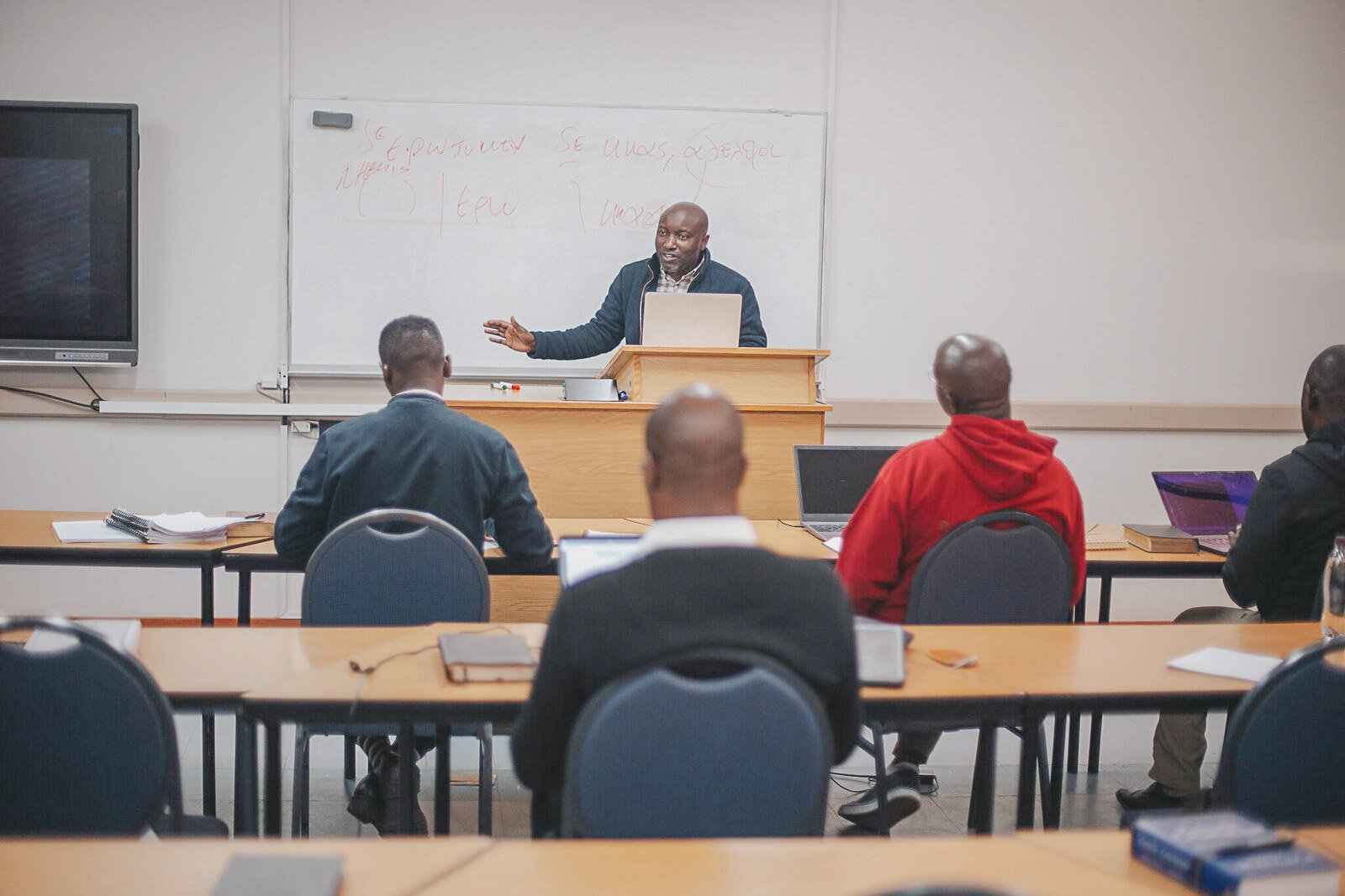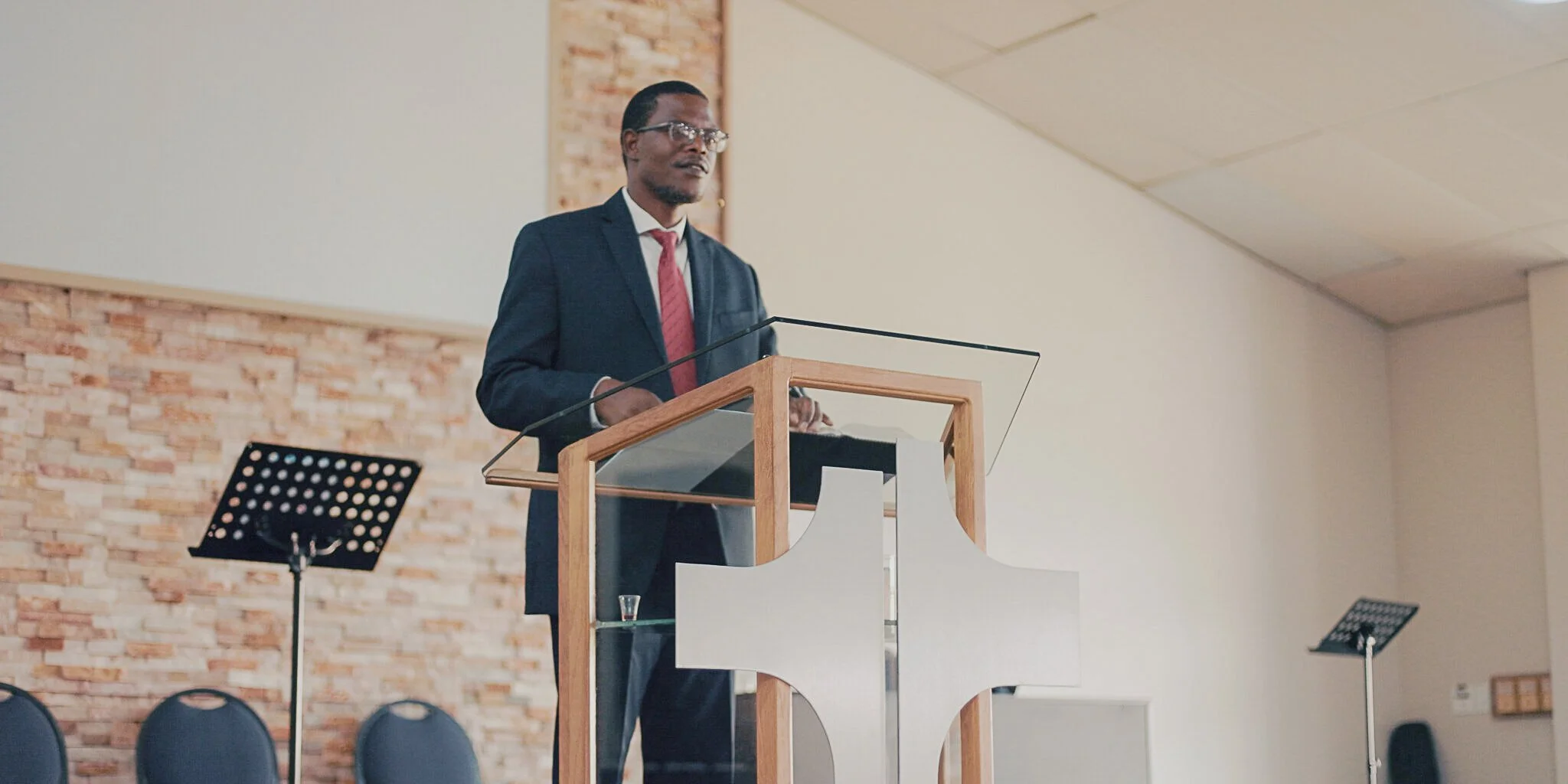South Africa
Christ Seminary
MEMBER SCHOOL
Number of Graduates: 200 | Churches Impacted: 140
To strengthen churches and transform communities by equipping pastors to shepherd the flock, correctly handling the Word of God.
MISSION
KEY DETAILS ON CHRIST SEMINARY
About
-
We exist to strengthen churches by equipping pastors to preach expositional messages and to shepherd the flock so that lives are transformed by the power of the word of God.
-
Equip and train pastors in expository preaching
Provide skills in biblical counselling that will help the church and communities
Promote the establishment of New Testament model churches
-
We use a modular model. Students come for nine days a month for an intensive class session. Classes start from 07:30 to 13:30, from Tuesday to Wednesday. They spend 21 days in their churches doing practical ministry and also assignments from the seminary. All students are assigned a mentor pastor for spiritual development and coaching for the duration of their training. One Sunday, while in session, students are required to be part of the local church (CBC) where the training is taking place.
Training
-
Bachelor of Theology: A three-year program designed for those who want to pastor and also pursue academic qualifications towards a Master's and a Doctorate.
Diploma of Theology: A three-year program designed for those who want to do pastoral ministry.
-
CS was founded in 1997 by CBC with the support of missionaries from Grace Community Church and Believers Foundation. It began with eleven men as an affiliate of Cape Town Baptist College. It then received its own accreditation from the CHE. It has graduated over 250 men. Currently, there are six faculty members who are also graduates of Christ Seminary. CS has national and international partners who are faithfully supporting this ministry.
-
CS hopes to introduce a TMAI Bachelor of Theology Certified Academic Program (CAP) and upgrade to Master of Divinity.
We also aim to start satellite campuses in other provinces and beyond the borders of South Africa.
Context
-
Population: 60,442,647 (2024 est.)
EthnicGroups: Black African 80.9%, Colored 8.8%, White 7.8%, Indian/Asian 2.6% (2021 est.)
Note: Colored is a term used in South Africa, including on the national census, for persons of mixed race ancestry who developed a distinct cultural identity over several hundred years.
Languages: isiZulu or Zulu (official) 25.3%, isiXhosa or Xhosa (official) 14.8%, Afrikaans (official) 12.2%, Sepedi or Pedi (official) 10.1%, Setswana or Tswana (official) 9.1%, English (official) 8.1%, Sesotho or Sotho (official) 7.9%, Xitsonga or Tsonga (official) 3.6%, siSwati or Swati (official) 2.8%, Tshivenda or Venda (official) 2.5%, isiNdebele or Ndebele (official) 1.6%, other (includes South African sign language (official) and Khoi or Khoisan or Khoe languages) 2% (2018 est.)
Note: data represent language spoken most often at home
Religions: Christian 86%, ancestral, tribal, animist, or other traditional African religions 5.4%, Muslim 1.9%, other 1.5%, nothing in particular 5.2% (2015 est.)
Population of Major Urban Areas: Johannesburg (includes Ekurhuleni) 10.316 million, Cape Town (legislative capital) 4.890 million, Durban 3.228 million, Pretoria (administrative capital) 2.818 million, Port Elizabeth 1.296 million, West Rand 934,000 (2023)
Refugees and Internally Displaced Persons
Refugees (Country of Origin): 22,388 (Somalia), 15,240 (Ethiopia) (mid-year 2022); 42,132 (Democratic Republic of the Congo) (refugees and asylum seekers) (2024)
Internally Displaced Persons: 5,000 (2020)
Stats from CIA.gov
-
In 1652, Dutch traders landed at the southern tip of present-day South Africa, leading to the establishment of the city of Cape Town. When the British took over the area in 1806, Dutch settlers known as “Boers” or Afrikaners, were driven out and scattered to the surrounding regions. In 1879, the native tribal kingdom of the Zulus was defeated and incorporated into the British Commonwealth. A policy of apartheid was instituted in 1948 when the National party was voted into power—leading to civil unrest and insurgency. South Africa has struggled throughout the succeeding administrations to address the lasting negative effects of apartheid in housing, education, health care, and economic welfare. Christianity in South Africa is heavily influenced by syncretism, ethnic African religions, and Pentecostal theology.
Compiled from CIA.gov, Operation World, and Joshua Project
HOW TO PARTNER
Support Christ Seminary
LEARN MORE













